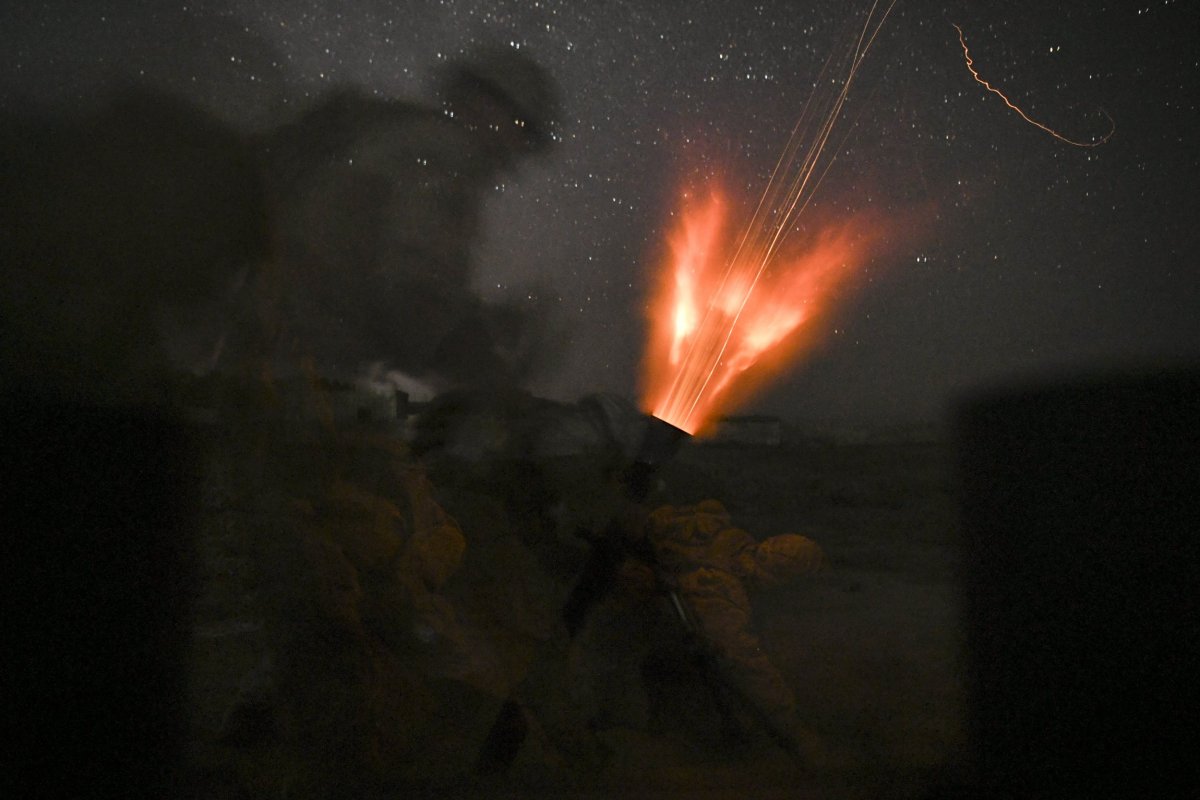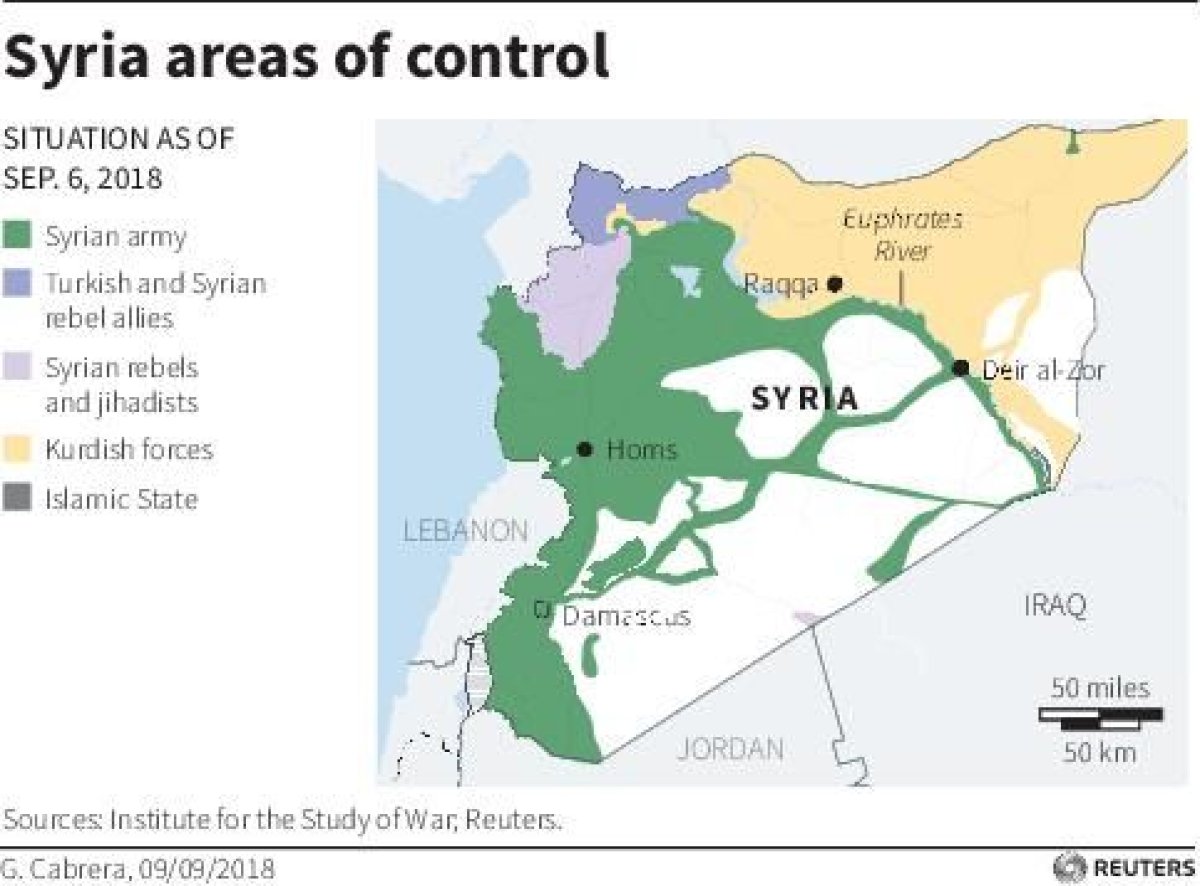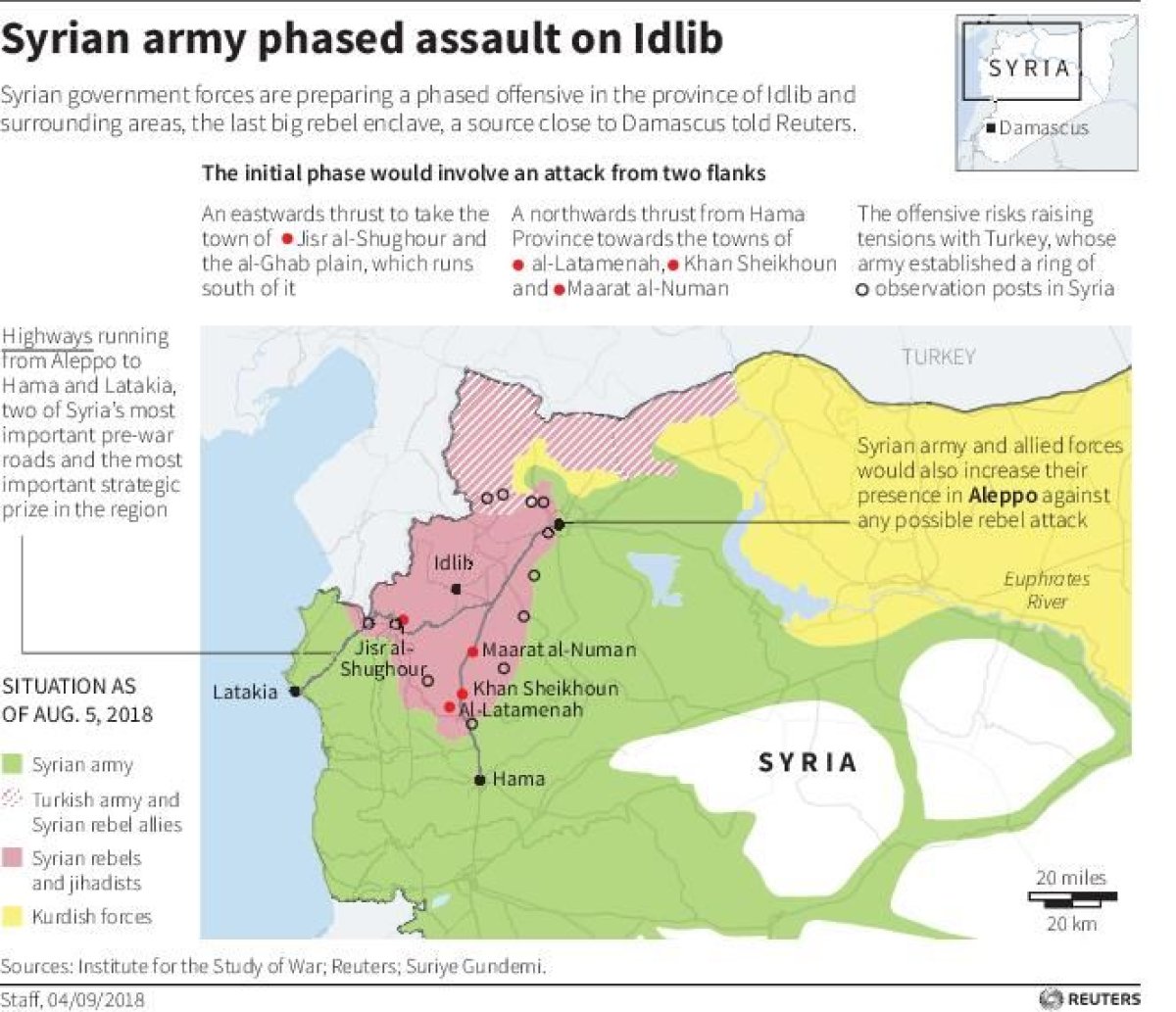The U.S. and Russia began separate efforts Tuesday to help their respective Syrian allies defeat the Islamic State militant group (ISIS) in the country, just as new reports indicated that the risk of a conflict between the two world powers was again escalating.
The Syrian Democratic Forces, a mostly Kurdish alliance backed by the U.S.-led coalition against ISIS, launched the third and final phase to defeat ISIS in eastern Syria, where the jihadis who once controlled half the country were reduced to mere pockets, including the village of Hajin and the countryside of Deir Ezzor province. Days after its local partners officially banned the use of child soldiers—a move the coalition told Newsweek that its allies were committed to—a coalition press release announcing the beginning of the offensive called the Syrian Democratic Forces "reliable, effective combat soldiers who abide by the law of armed conflict."
"We will continue to support our SDF partners in our shared fight against ISIS in Syria, and we thank the SDF for the incredible contribution and sacrifices they have made on behalf of the international community," Major General Patrick Roberson, commander of the Special Operations Joint Task Force - Operation Inherent Resolve, said in a statement.
"The multiethnic Syrian Democratic Forces remain committed to liberating the people of northeastern Syria from ISIS's control and putting an end to the human suffering in the area," Roberson added. "Moving forward, we will continue coordination with the SDF and other partners to promote regional security and stability that will ensure a lasting defeat of ISIS."

The U.S. began supporting the Syrian Democratic Forces in October 2015 after attempting to oust Syrian President Bashar al-Assad with CIA support for rebels whose increasingly Islamist tendencies alienated Western support throughout the conflict. Unlike the Syrian opposition, the Syrian Democratic Forces have not explicitly forsaken the government and were focused on defeating ISIS, which had largely overtaken the insurgency and begun sweeping through Kurdish homelands.
Around the same time that the Pentagon began assisting the Syrian Democratic Forces, Russia entered Syria's civil war at the request of Assad, whose armed forces and their Iran-backed militia allies had been forced to withdraw to the country's west coast. Since then, the Syrian military and its partners have managed to regain most of the country from both rebels and jihadis, while the Syrian Democratic Forces have secured separate stretches of former ISIS-held territory in the north and northeast.
The Syrian military also launched a battle against the final remnants of ISIS influence. The Syrian military has in recent months retaken the once rebel-controlled suburbs of eastern Ghouta outside of Damascus and most of the country's southwest, defeating insurgents and ISIS fighters in both. The official Syrian Arab News Agency reported on a government offensive against the militants in the desert of Al-Sweida province. Meanwhile, the pro-opposition, U.K.-based Syrian Observatory for Human Rights noted intense clashes between the Syrian military and ISIS in the central province of Homs.
That front is located near a unilaterally declared U.S. military base surrounding the Al-Tanf region. Russia, Iran and Syria have accused Washington of using the installation to protect jihadis, something it has routinely denied. The U.S.-led coalition does, however, assist the Maghawir al-Thawra, one of the last insurgent groups in this part of Syria. In the northwest, a looming Syrian offensive against Idlib province has revived U.S. threats of military action in spite of Russian warnings.


The U.S. has twice struck Syrian government sites in the past year and a half, in response to alleged chemical weapons attacks that Russia, Iran and Syria have dismissed or blamed on local actors conspiring with Western powers. U.S. national security adviser John Bolton has warned that Syria may be preparing a chemical weapons attack and said Monday that the U.S. has "been in consultation with the British and the French, who joined us in the second strike, and they also agree that another use of chemical weapons will result in a much stronger response."
On Tuesday, Secretary of Defense James Mattis told reporters that Assad "has been warned. And so we'll see if he's wised up." The Syrian leader has demanded that U.S. and Turkey withdraw from the conflict immediately, considering only Russia and Iran to be legitimate international partners.
Russia has claimed that the latest rhetoric served as evidence that the West was plotting with Syrian militants to stage a poison gas attack in order to draw foreign military action. Moscow recently conducted its largest exercise in the nearby Mediterranean Sea, and Russian Deputy Foreign Minister Sergei Ryabkov referred to recent U.S. statements regarding possible intervention as "absolutely the policy of threats and blackmail."
In addition to public U.S. statements, a Monday report from The Wall Street Journal suggested that Trump may consider striking Russian, Iranian and Syrian targets in retaliation for a chemical weapons attack. Kremlin spokesperson Dmitry Peskov responded directly to this report, saying, "We don't take media reports seriously because they have completely discredited themselves," according to the state-run Tass Russian News Agency. "We focus on official statements," he added.
Uncommon Knowledge
Newsweek is committed to challenging conventional wisdom and finding connections in the search for common ground.
Newsweek is committed to challenging conventional wisdom and finding connections in the search for common ground.
About the writer
Based in his hometown of Staten Island, New York City, Tom O'Connor is an award-winning Senior Writer of Foreign Policy ... Read more
To read how Newsweek uses AI as a newsroom tool, Click here.








